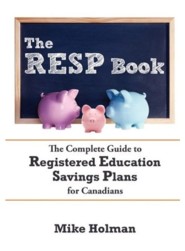I hate tipping of any sort and I wish the practice didn’t exist. Don’t get me wrong, I tip at restaurants and bars like everyone else, but I don’t like it.
I’ve heard that tipping is a way to make up for a lack of a decent wage for waiters, delivery persons etc who have to work hard. My question is why can’t they get paid a market rate like everyone else? What is different about restaurants and bars?
Another reason I’ve heard is that you should tip for good service. My question is, if the person is just doing their job then why do you have to pay extra?
Most workers get compensated for doing a good or exceptional job by raises, promotions, bonuses which comes from the employer. I realize this compensation gets passed back to the consumer and I’m fine with that. I’d rather that food prices in restaurants go up 10% to pay for a better wage for workers (if the wages are too low). I also haven’t noticed any correlation between tipping and service – it appears that most waiters expect a tip and their performance is based on other factors.
There are some odd occupations that can get tips, baggage handlers at the airport? Shouldn’t you get arrested for that?. One of the things that bugs me the most about tipping is why some workers get tips and most don’t?
It seems that waiters and bartenders, delivery workers are the biggest recipients of tips. But if you tip a bartender for grabbing a beer and removing the cap for you, why don’t you tip the person who works at the beer store who has to go into the back and grab the beer? What about gas stations attendants? What about the postman? Do you give them a tip for making it to your house that day?
How about if you get great customer service on the phone? Do you offer to paypal a tip to them? And what about the ten year old in Asia who spent part of his 12 hour work day on your new running shoes, did anyone tip him? I just can’t understand why some people get tips and others don’t.
In Australia, there are no tips in restaurants and when I was there a few years ago, I didn’t notice the service was any worse than it normally is here in Toronto. The other great thing about Oz is that both tips and taxes are included in the menu price so whatever the menu price is, that’s what you pay.
When you go to the dentist/doctor – do you give them a tip? What about their receptionist? If they do a great job why not reward them a little extra. What about your bus/street car driver? What about your co-workers? If one of them gives you a little extra help do you give them a tip?
And what about social situations where you have a group bill and different people want to tip different amounts? I personally think that generally 10% of the gross bill is sufficient, but many times I’ve been in the situation where I’m out with friends and the bill might be $100 – I think we should leave $10 tip, $15 max (we’re talking very average service here), but some guys want to leave $20, and some guys want to leave $30 or $35?
Never mind the fact that the amount they put in doesn’t always correspond to the amount of tip they think we should be leaving. Do I have to put in extra money to make up for the fact that someone else wants to overtip? Do they have to put in extra to make up for my lessor tip?
I read a great story a while ago (can’t remember where unfortunately) where the person went out to lunch with some co-workers, they had individual bills, and one of her co-workers thought she gave too much tip and proceeded to take some of the tip and put it in her own pocket (I call this stealing).
Am I out of line here? Does it not make more sense if tipping didn’t exist and let the work/wage equation sort itself out?
